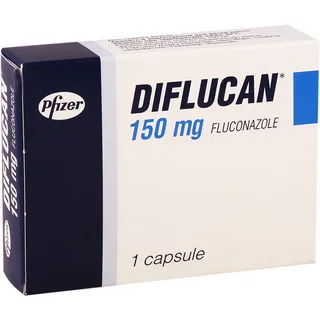Diflucan - Product Description
Overview:
Diflucan is a potent antifungal medication used to treat and prevent various fungal infections. Its active ingredient, fluconazole, effectively halts fungal growth, ensuring fast and reliable relief. Available in multiple forms, it is particularly suitable for individuals with weakened immune systems, offering both flexibility and efficacy in treatment.
Indications:
Diflucan is indicated for the treatment of various fungal infections, including vaginal candidiasis, oropharyngeal and esophageal candidiasis, systemic Candida infections, cryptococcal meningitis, and other infections caused by susceptible fungal organisms. It is also used as a prophylactic treatment to prevent fungal infections in high-risk patients.
How to Use:
Diflucan should be taken exactly as prescribed by a healthcare professional. For oral administration, it is available in tablet or liquid form and can be taken with or without food. The dosage and duration of treatment vary depending on the type and severity of the infection. It is important to complete the full course, even if symptoms improve.
Advantages:
Diflucan offers several advantages: it is effective against a wide variety of fungal infections, available in multiple forms for easy administration, and suitable for both short-term and long-term use. Its once-daily dosage regimen enhances patient compliance, while its broad antifungal activity makes it a preferred choice for many healthcare providers.
Conclusion:
Diflucan is a trusted antifungal medication that effectively treats a variety of fungal infections. Its versatile dosage forms, broad-spectrum action, and suitability for immunocompromised patients make it an essential treatment option. For anyone facing fungal infections, Diflucan offers reliable, proven relief.
Composition:
Diflucan contains the active ingredient fluconazole, a potent antifungal agent. It is formulated in various strengths, commonly in 50 mg, 100 mg, 150 mg, and 200 mg tablets, as well as in oral suspension and intravenous forms. The inactive ingredients include microcrystalline cellulose, dibasic calcium phosphate anhydrous, croscarmellose sodium, and magnesium stearate.
Note:
Diflucan may cause side effects such as nausea, headache, dizziness, and abdominal pain. It should be used with caution in patients with liver or kidney problems. It is important to inform your healthcare provider about any other medications you are taking to avoid potential interactions.






